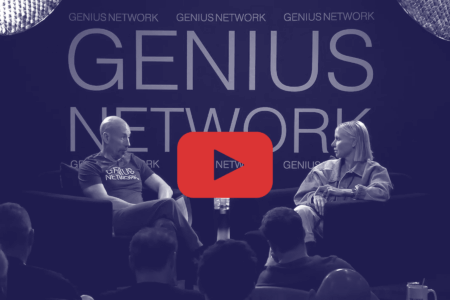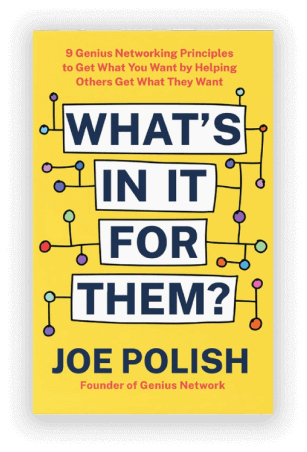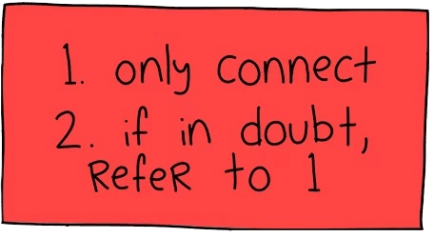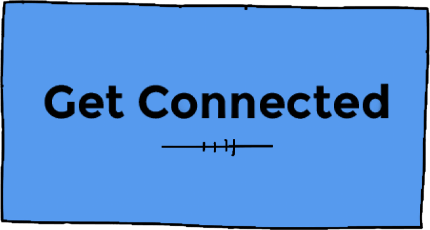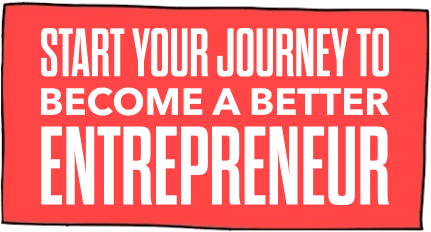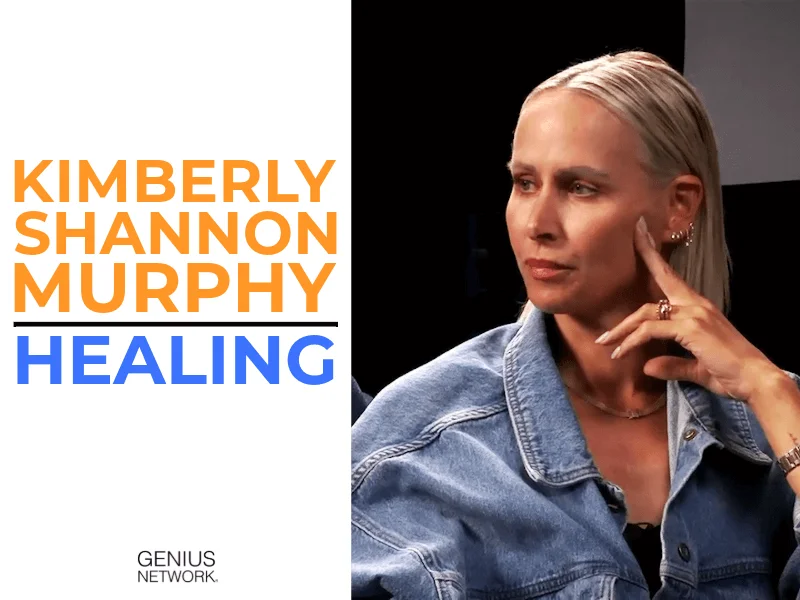
Behind the Action: How Hollywood’s Top Stuntwoman Turned Trauma into Triumph Featuring Kimberly Shannon Murphy and Joe Polish #215
Episode Summary
Joe Polish interviews stuntwoman and trauma survivor Kimberly Shannon Murphy. Kimberly opens up about her personal journey of overcoming childhood abuse, healing, and how her experiences shaped her career. Her powerful story highlights resilience, transformation, and the importance of addressing trauma for personal growth.
Here’s a glance at what you’ll discover from Kimberly in this episode:
- How Kimberly Shannon Murphy transformed her career as a stuntwoman in over 130 films while overcoming unimaginable trauma—from being physically abused as a child to healing through therapy and psychedelics.
- Kimberly reveals how her childhood abuse by her own grandfather drove her to push her body to the limits as a Hollywood stuntwoman, and how she found a path to healing.
- Learn the truth behind Hollywood’s fearless stuntwoman (Kimberly talks about her harrowing past of sexual and physical abuse, and how it shaped her desire to perform life-threatening stunts for over two decades.)
- Kimberly shares her raw experience with psychedelic therapy that unlocked deeply buried trauma and allowed her to reconcile with her past, providing hope to others battling hidden pain.
- The Dangerous Addiction You Never Hear About: Kimberly opens up about her lesser-known form of self-harm: cutting on visible parts of her body as a child, and how it mirrored the pain inflicted upon her by her abusive grandfather.
- Hollywood’s Dark Side and Why the Industry Protects Abusers and Traumatizes Children: Drawing from her years in Hollywood, Kimberly discusses the hidden culture of abuse in the industry and her personal connections to survivors, shedding light on the predators who operate in plain sight.
- Breaking Free from Generational Trauma: Kimberly’s story isn’t just about survival—it’s about breaking the cycle of abuse that spans generations. Here’s how she confronted her family’s denial and chose a path of self-healing and empowerment…
- Reclaiming Your Power After Childhood Abuse: Hear how Kimberly reclaimed her power by cutting ties with family members who refused to acknowledge her trauma, proving that the first step to healing is self-respect.
If you’d like to join world-renowned Entrepreneurs at the next Genius Network Event or want to learn more about Genius Network, go to www.GeniusNetwork.com.
WHAT'S IN IT FOR THEM?
Get the first chapter for FREE and a limited-time viewing of "Connected: The Joe Polish Story"
Show Notes
Kimberly’s Journey from Stuntwoman to Coordinator:
- Kimberly reflects on her early career as a stuntwoman, performing extreme physical feats while pushing her body to its limits.
- Her transition to a stunt coordinator, which allowed her to step away from the physical toll of her job, mirroring her emotional healing journey.
- How her stunts were tied to her trauma, using physical pain to cope with internal emotional scars.
Cutting and Self-Harm as Coping Mechanisms:
- Kimberly discusses her experience with cutting as a child, using self-harm to seek attention and express the pain of her abuse.
- The link between her cutting behavior and the abuse she suffered at the hands of her maternal grandfather, who also inflicted physical harm on her.
- Joe and Kimberly explore the complexities of self-harm, addiction, and trauma, emphasizing how people attempt to cope with shame and emotional scars.
Abuse and Trauma in Hollywood:
- A discussion of the prevalence of abuse in Hollywood, with Joe and Kimberly touching on high-profile cases such as Harvey Weinstein, Epstein, and P. Diddy.
- Kimberly offers insights into how power and money in the entertainment industry enable abuse to persist and remain hidden for so long.
- Reflections on the bravery of survivors like Corey Feldman and others who have spoken out about Hollywood’s dark secrets.
Healing Through Psychedelics and Therapy:
- Kimberly’s experience with psychedelic therapy, which played a pivotal role in her recovery from trauma.
- How substances like MDMA, when used in therapeutic settings, helped her uncover repressed memories and confront deep-rooted pain.
- The difference between recreational drug use and intentional, healing-focused psychedelic therapy.
- Joe shares his own experiences with psychedelics, explaining how they helped him find long-term sobriety from sexual addiction.
Breaking the Cycle of Generational Trauma:
- Kimberly speaks about her family’s history of abuse and addiction, describing how the trauma inflicted by her grandfather affected not only her but her siblings and other family members.
- The importance of breaking the cycle of generational trauma and finding a path to healing that doesn’t perpetuate pain to future generations.
- The role of empathy, awareness, and self-work in moving forward and creating positive change.
Empathy and Healing:
- Joe reflects on his own abuse as a child and how it has shaped his desire to help others heal from trauma.
- The importance of recognizing the societal impact of trauma and abuse, and how unresolved pain manifests in harmful ways, including narcissism and sociopathy.
- Joe and Kimberly emphasize the need for individuals and communities to support survivors of abuse and foster environments where healing is possible.
Kimberly’s Background and Family Trauma:
- Kimberly shares her painful childhood experiences with abuse from family members, and how this abuse was ignored by her relatives.
- Her book project initially started as a family endeavor, but as she began to tell her story, her relationships with her family began to unravel.
- She opens up about the challenges of confronting family members who deny or refuse to take responsibility for their roles in the abuse.
Healing Through Psychedelics:
- Joe and Kimberly discuss their experiences with ayahuasca and how plant medicines helped Kimberly process the trauma she endured.
- Kimberly recounts a powerful ayahuasca journey that allowed her to confront and release deep emotional pain tied to her family, especially her parents.
- Joe reflects on how these types of journeys can shift perspectives on death, relationships, and compassion, allowing individuals to see their abusers in a new light.
- The ability to reach a deeper understanding of family dynamics and gain compassion for people who have hurt you, even when they don’t acknowledge the harm.
Generational Healing and Family Dynamics:
- Kimberly explains how her healing journey through psychedelics and therapy created distance between her and her family, as they were not willing to acknowledge or heal from the abuse.
- She highlights the importance of generational healing, noting that dysfunctional family units often remain stuck in trauma until someone steps up to break the cycle.
- Kimberly shares the painful experience of not being invited to her father’s funeral due to her family’s discomfort with the truths she revealed in her book.
The Role of Inner Child Work:
- Kimberly delves into the concept of “inner child work,” explaining how traumatic experiences can leave parts of us emotionally stuck at the age when the trauma occurred.
- For her, inner child work involved acknowledging that her younger self was not at fault for the abuse, and she has learned to protect and care for that part of herself.
- She recounts how cutting ties with her mother, who she viewed as unsafe, was a pivotal step in her healing process.
- Joe and Kimberly discuss the therapeutic approaches they’ve used, such as Internal Family Systems (IFS) and the guidance of experts like Dr. Richard Schwartz and Gabor Maté.
Boundaries, Self-Care, and Helping Others:
- Both Joe and Kimberly discuss the difficulty of helping others when you’ve opened yourself up to share personal trauma.
- Kimberly explains how writing her book and speaking about her experiences is a way of giving back, but also highlights the need for healthy boundaries.
- They explore the importance of self-care, especially for people in leadership positions or those responsible for helping others. Kimberly shares her self-care practices, such as working out, therapy, and ongoing personal work.
- They reflect on the challenge of wanting to help others while recognizing that healing is an individual journey that cannot be done for someone else.
Healing for Survivors:
- Kimberly encourages listeners who have experienced abuse to focus on rebuilding a relationship with themselves rather than trying to maintain toxic family ties.
- She highlights the power of setting boundaries and finding support through therapy, inner child work, and psychedelic journeys, when appropriate.
Supporting Others in Trauma:
- Joe and Kimberly discuss ways to support friends, family members, or colleagues who may be struggling with trauma, emphasizing the importance of understanding, compassion, and healthy boundaries.
- They stress that while you can offer support, it’s important to remember that each person must ultimately take responsibility for their own healing.
Kimberly’s Impactful Work:
- Joe Polish opens the conversation by reflecting on the profound impact of Kimberly Shannon Murphy’s book.
- He shares how it serves as a catalyst for personal transformation, expressing that if he’d encountered this message earlier in life, things might have been very different for him.
Upcoming Event with Kimberly and Dr. Gabor Maté:
- Kimberly shares details about her upcoming event with renowned trauma expert Dr. Gabor Maté, taking place on October 6th in Los Angeles.
- This groundbreaking event will be the first where Dr. Maté works directly with a trauma survivor, offering a blend of lived experience and clinical insights.
- The focus will be on the complexities of childhood abuse and family systems, providing attendees with healing opportunities through both dialogue and expert perspective.
Kimberly’s Journey to Connecting with Dr. Gabor Maté:
- Kimberly describes her therapist’s hesitation to introduce her to Dr. Maté’s work out of concern it might deepen her trauma, but it eventually became a transformative turning point.
- She recounts how she tracked down Dr. Maté through Instagram, leading to a Zoom call that changed her life. He later endorsed her book, further strengthening their connection.
Creating an Intimate Event for Deep Dialogue:
- The event is intentionally capped at 200 participants to create an intimate environment where attendees can engage in meaningful discussions and personal healing with both Kimberly and Dr. Maté.
- Unlike typical motivational or business events, this one will focus on trauma processing and healing.
Turning Trauma Into Creative Work: Kimberly’s Vision for a Movie:
- Kimberly shares her aspirations to turn her personal story into a movie to further spread awareness about trauma and healing. She believes it will serve as a source of inspiration and education for a larger audience. Joe encourages her, noting that many in the room could offer valuable insights and advice.
Social Media & Staying Authentic:
- Kimberly discusses how she manages her presence online, sharing that her team helps manage accounts across platforms, but she primarily uses Instagram (@KimberlyShannonMurphyStunts).
- She reflects on the role of authenticity in her approach, not even knowing her passwords for other platforms.
Integrity in Interviews and Content Creation:
- Kimberly talks about negative experiences with some interviewers who used her story for clickbait and how Joe’s respectful and genuine approach stands out.
- They discuss the importance of integrity in sharing sensitive stories, and how trauma is often exploited by marketers.
The Unseen Struggles of Personal Development Attendees:
- Joe and Kimberly dive into the realities of many people attending personal development events, unaware they are dealing with underlying trauma, depression, or addiction.
- Joe reflects on how trauma impacts people’s lives and behaviors, emphasizing that healing requires surrender, not just force.
Understanding and Changing Atmospheric Conditions:
- Joe highlights how individuals can influence the “atmospheric conditions” around them as adults, in contrast to childhood when they are subject to external influences.
- He emphasizes the power of connecting people with ideas and solutions to their trauma, to create more positive atmospheres both personally and professionally.
Resources
- Watch This Interview on YouTube
- Glimmer: A Story of Survival, Hope, and Healing by Kimberly Shannon Murphy
- kimberlyshannonmurphy.com
- Return to Self: Navigating Attachment and Authenticity with Dr. Gabor Maté & Kimberly Shannon Murphy

